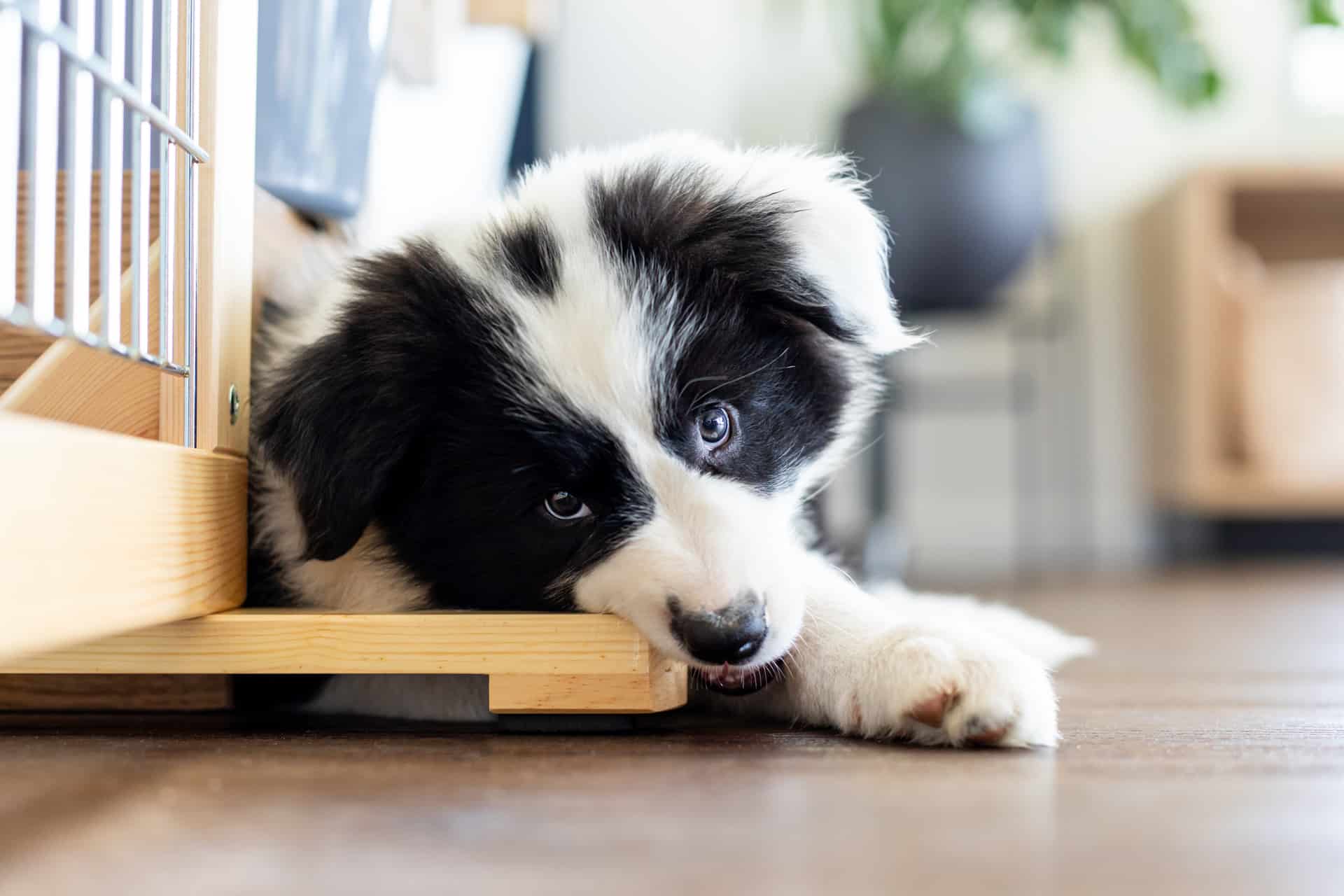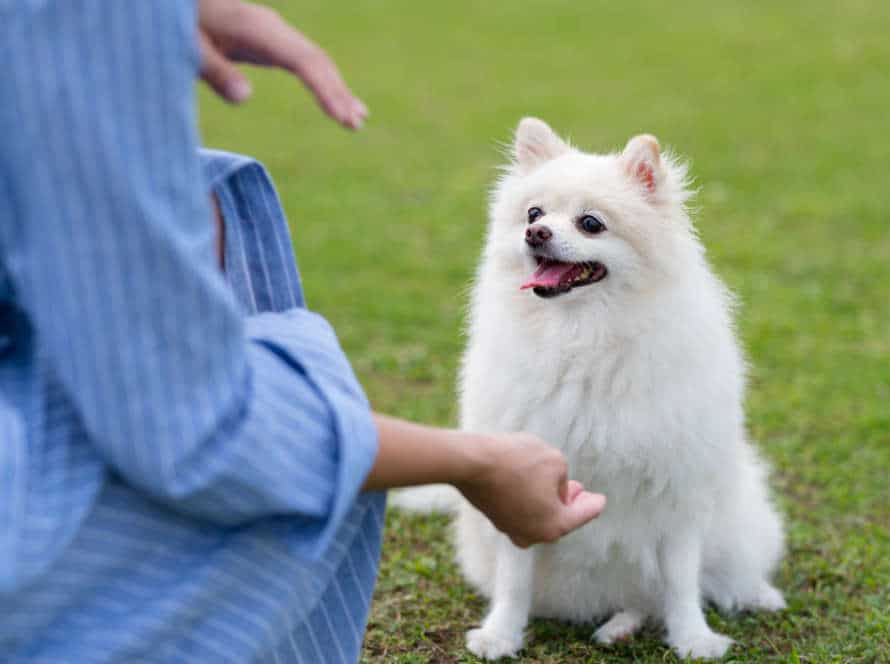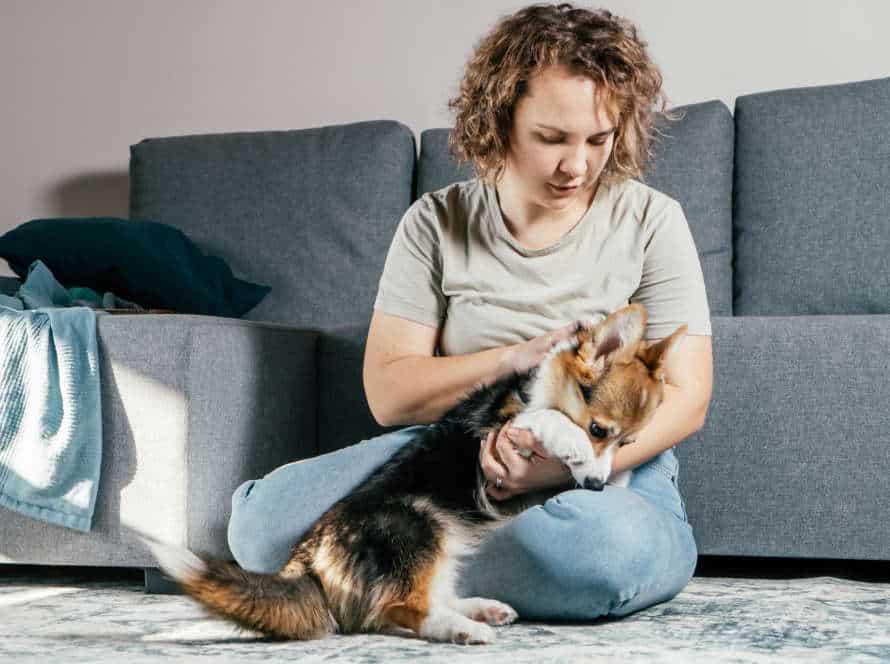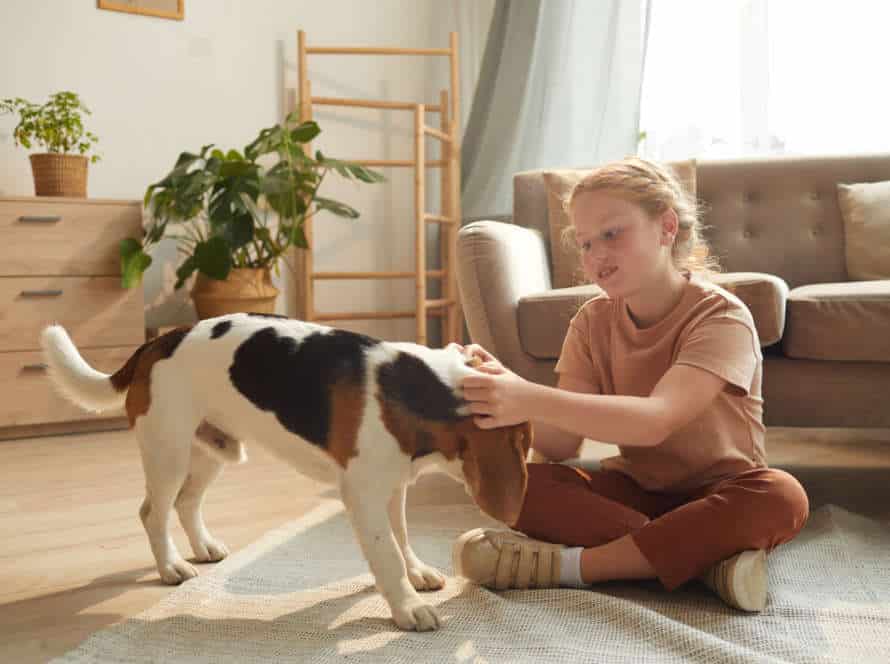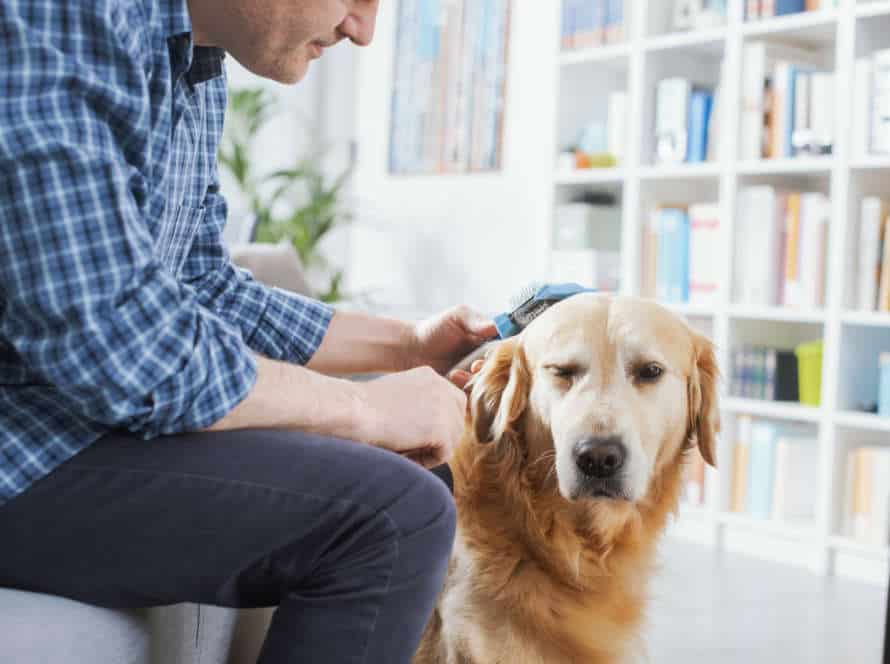When to Seek Professional Help for Puppy Biting Issues
Puppy biting is a common issue. Resolve it with training and positive reinforcement. In some cases, seek professional help.
Warning signs:
- Aggressive behavior like growling, snarling, lunging
- Excessive biting despite attempts to correct
- History of abuse or neglect
Address puppy biting early. Use positive reinforcement, no physical punishment.
Understanding Puppy Biting Behavior
Puppy biting is normal. As pups grow, they explore their environment. We must understand why puppies bite and the effects if it’s not addressed. To prevent it becoming a habit, we need to understand the behavior. Let’s look at the cause and potential solutions.
Why do puppies bite?
Biting is a normal thing for puppies. It’s how they check out the world, play, and even chat. When pups are with their littermates, they bite each other during play. But when they are with people, they must be taught that biting us isn’t okay.
A few reasons why puppies bite:
- Teething: Puppies bite more when their teeth are coming in because it hurts and is uncomfortable.
- Playfulness: Pups adore playing, and biting is one of their favorite games. They don’t yet know that it can hurt humans.
- Fear and anxiety: In certain situations, puppies can get scared or anxious, leading to biting as a protection.
If your pup’s biting is getting more intense and you can’t control it, get help from an expert dog trainer or behaviorist. They can figure out why the biting is happening and instruct you on how to train your puppy to stop.
Different types of puppy biting behavior
Puppy biting has various types:
- Social biting is a natural way for puppies to check out their environment and get to know each other.
- Playful biting is when puppies use their teeth in games or training.
- Fear biting is a puppy’s defense against perceived threats.
- Aggressive biting is much more serious, and could point to emotional or medical issues.
If your puppy’s biting is too much, seek help. A pro will provide useful techniques and address any problems.
Identifying normal vs. aggressive biting
It’s important to tell the difference between normal puppy biting and aggressive biting. Normal biting is during playtime and helps puppies learn and explore. As they grow, they learn how to bite without hurting. Aggressive biting is different. It’s intentional and can cause harm. If a puppy growls, lunges, or forcefully bites without warning, it is aggression. If you see this, get help from a certified dog trainer or vet. They can find the reason and teach the puppy how to behave.
When to Seek Professional Help for Puppy Biting Issues
Puppies often bite as a normal behavior, but it can become an issue if left unchecked. If your pup bites too often or too hard, it’s important to get help from a professional. Here’s when you should seek help for puppy biting behaviors:
When puppy biting becomes excessive or harmful
Puppies are famous for their active and fun-loving ways, such as playful nipping and biting. But when their biting gets too strong or harmful, it’s time to get professional help.
Signs that you need help with your pup’s biting:
- They bite hard, causing hurt or injury.
- They act aggressively or growl during biting.
- Their biting doesn’t improve with training or time.
Get professional help from a vet or animal behaviorist. They can give your puppy the right training and guidance to stop the excessive biting.
Recognizing signs of aggression in puppies
Aggression in pups is a real trouble. We must act fast to avoid harm to others. Here’re some signs to detect aggression in puppies and when to look for professional help for puppy biting problems:
- Growling, snarling, or showing teeth when someone is near.
- Biting or nipping too much, even when not playing.
- Not following commands & resisting training.
- Wanting to be alone & protecting their stuff.
If you notice these signs in your pup, get professional help from a dog trainer or behaviorist. They can give an expert opinion and make a tailored training plan to solve the root of the aggression. Don’t ignore aggressive behavior in puppies. This can become worse and cause serious issues. Tip: Early action and good training can prevent aggressive behavior & make sure your pup grows to be a well-behaved & happy dog.
Seeking help from a certified canine behaviorist or trainer
If your puppy is biting in a persistent, aggressive way, it’s time to see a certified canine behaviorist or trainer. Here are signs that help is needed:
- Your puppy’s biting is causing serious injury or fear to people or animals.
- Your pup’s biting seems overly aggressive, even after disciplining.
- Your puppy’s biting is compulsive and uncontrollable.
In such cases, an experienced trainer can create a custom training plan to help you and your pup. This will help you improve your connection with your pet and make for a safe and content atmosphere.
Choosing the Right Canine Professional for Puppy Biting Issues
Address puppy biting now so it won’t become a bigger issue. Think about getting professional help? Consider the expertise of the canine pro you’ll work with. Why is this important? We’ll look at how to choose the right one for your pup’s special needs.
The difference between a canine behaviorist and trainer
When searching for help with puppy biting issues, it’s essential to know the difference between a canine behaviorist and a trainer.
A trainer teaches a dog skills, like “sit” and “stay”. They use various training techniques to form desirable behaviors. But, if a pup has underlying behavioral issues, such as aggression, fear, or anxiety, training won’t resolve the problem.
On the contrary, a canine behaviorist evaluates and works to figure out the cause of the behavioral issue. They look at the pup’s psychological and physiological history to create a lasting solution.
Basically, if your pup has a particular behavioral issue, like persistent puppy biting, you need a canine behaviorist. If you need help with fundamental obedience, a trainer may be the right choice.
How to find a certified and reliable canine professional
Finding a certified and trustworthy canine professional is key for tackling puppy biting problems. Here are some tips to aid you in locating the ideal canine specialist for your needs:
- Look for a certified canine behavior consultant or certified professional dog trainer. They have done extensive training and certification, so you can trust them to address your puppy biting issues.
- Inspect the professional’s qualifications and experience. Request references and look at online reviews to decide if their methods are successful and if they have a good track record.
- Ensure the professional uses humane and positive reinforcement-based training methods. Avoid professionals who use aversive techniques or depend on punishment, as these methods can be damaging to your puppy’s mental and emotional health.
- Factor in logistics like location, availability, and cost. Opt for a professional who is easily accessible to you and within your budget.
- Keep in mind, taking care of puppy biting issues is essential for your puppy’s safety and wellbeing. Do not hesitate to get professional help if needed.
- Pro tip: Ask your vet for a referral to a reliable canine behavior professional in your area.
Understanding the training process and expected outcomes
Seeking help for puppy biting? Keep these in mind:
- The training process – A pro will use positive reinforcement to teach pup appropriate actions and discourage biting. This may include redirecting pup’s focus to a toy or treat, rewarding good behavior, and providing consistent feedback and corrections.
- Expected outcomes – Each pup is different, yet a good trainer can reduce biting significantly. Training is an ongoing process needing patience, consistency, and practice. Even with help, the pup may still bite, but the frequency and intensity should lessen over time.
- Pro Tip: Selecting a pro? Look for experience and expertise in treating puppy biting issues. Get references and reviews from past clients to make sure you’re working with someone reliable and effective.
Tips for Managing Puppy Biting in the Meantime
Puppy biting is common. It’s wise to tackle it fast. Seeking help from an expert is the best solution, but meanwhile here are a few tips for managing your pup’s biting. This article will go over when to get help from a pro and how to manage the biting.
Consistency is key
Managing puppy biting can be tough, yet consistency is important. Here are some tips:
- Redirect attention: Give your pup a toy or bone when they start nipping or biting. This shows them that biting is only okay on approved items.
- Avoid rough play: When puppies get stimulated, they may bite during rough play. Stay away from wrestling or tug-of-war until you’re sure they won’t bite.
- Socialize: Socializing your pup can help reduce their urge to bite due to fear or anxiety around new people or animals.
- Remember: Consistency is essential when correcting puppy biting. If there are persistent or aggressive biting problems, seek professional help from a dog trainer or behaviorist.
Redirecting energy and attention
Redirecting your pup’s energy and attention is an effective way to manage biting while you work on long-term training solutions. Here are some tips:
- Give appropriate chew toys and interactive games to redirect energy towards positive play.
- Teach basic obedience commands such as “sit” and “stay” to be the leader and give structure.
- Use positive reinforcement techniques like treats and praise to reward good behavior.
- Be consistent in training and watch your pup’s behaviour to identify triggers and prevent biting incidents.
If biting becomes uncontrollable or poses a risk, get help from a certified dog trainer or behaviourist. Look for someone with experience in puppy behaviour issues and uses positive reinforcement.
When to remove yourself from a biting situation
As a pet owner, it’s key to know when to distance yourself from a biting incident with your pup. Here are some signals to be aware of:
- Your pup does not listen to your “stop” commands and gets more aggressive.
- The pup is causing physical damage such as punctures or bruises.
- You are feeling overwhelmed and can’t manage the puppy’s biting.
If any of these are happening, it’s time to get help from a qualified dog trainer or behaviorist. Meanwhile, use positive reinforcement to deal with the puppy’s biting. Remember, biting is typical in puppies. With patience and hard work, you can teach them to reduce their biting.
Frequently Asked Questions
1. When should I seek professional help for my puppy’s biting issues?
It is recommended to seek professional help as soon as possible if your puppy is displaying aggressive biting behavior towards humans or other pets, or if their biting behavior is causing injury or harm.
2. How can a professional help with my puppy’s biting issues?
A professional can provide assessments of your puppy’s behavior, offer personalized training plans and techniques for correcting biting behavior, and provide ongoing support for you and your puppy.
3. Can puppy biting issues be resolved through self-training?
Some minor biting behavior can be addressed with self-training techniques, but in cases of aggression or excessive biting, it is important to seek professional help to ensure the safety and well-being of your puppy and those around them.
4. What are some common reasons for puppy biting behavior?
Puppy biting behavior can be caused by a variety of factors such as teething, boredom, fear, anxiety, lack of socialization, or a desire to play or establish dominance. It is important to understand the underlying cause of your puppy’s biting behavior in order to effectively address it.
5. How long does it take to correct puppy biting behavior?
The length of time it takes to correct puppy biting behavior can vary depending on the severity of the behavior and the consistency and effectiveness of the training methods used. It is important to remain patient and consistent throughout the training process.
6. Can professional help be provided virtually?
Yes, many professional trainers offer virtual training sessions to provide personalized support and training for your puppy’s biting behavior from the comfort of your own home.

